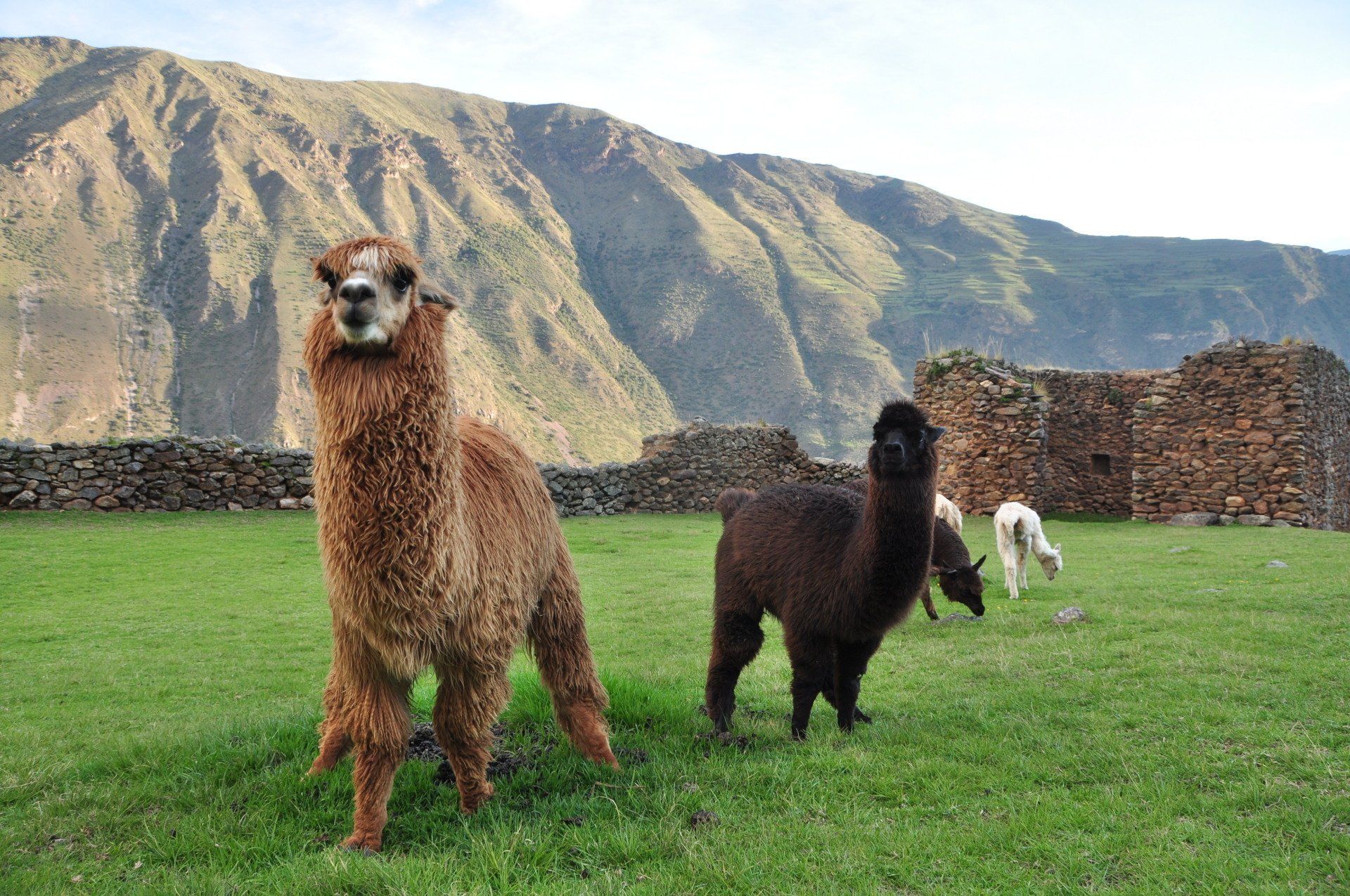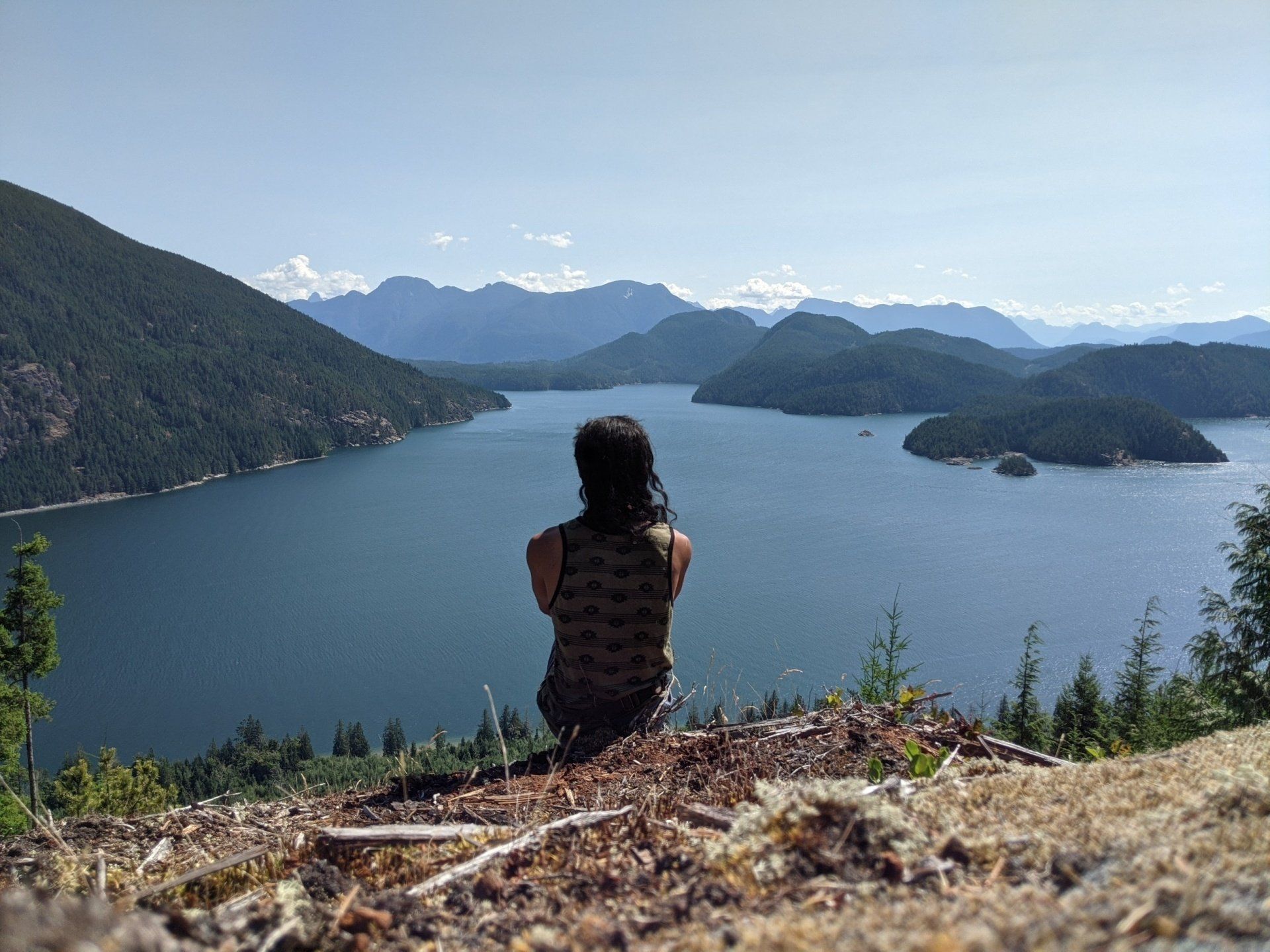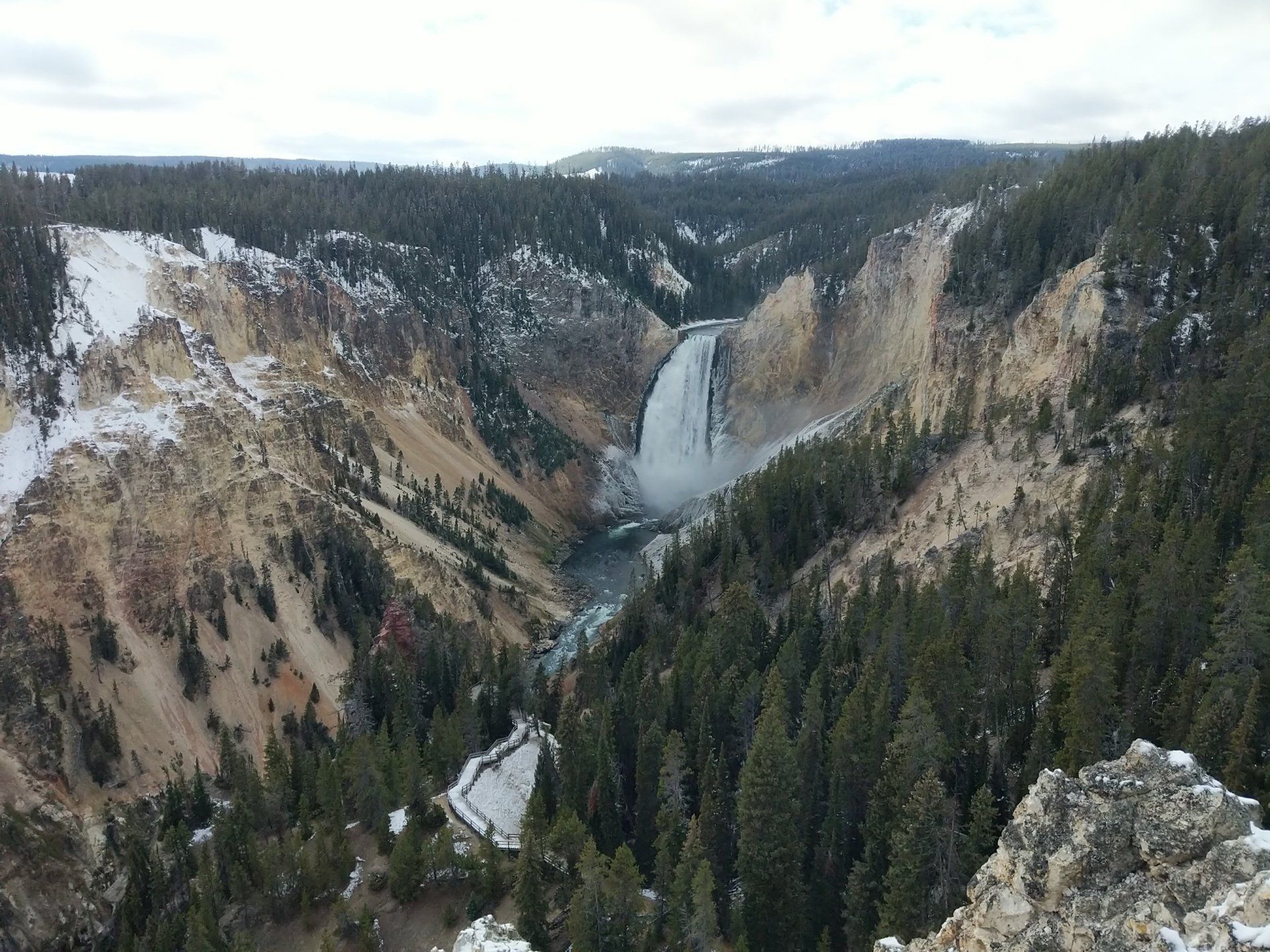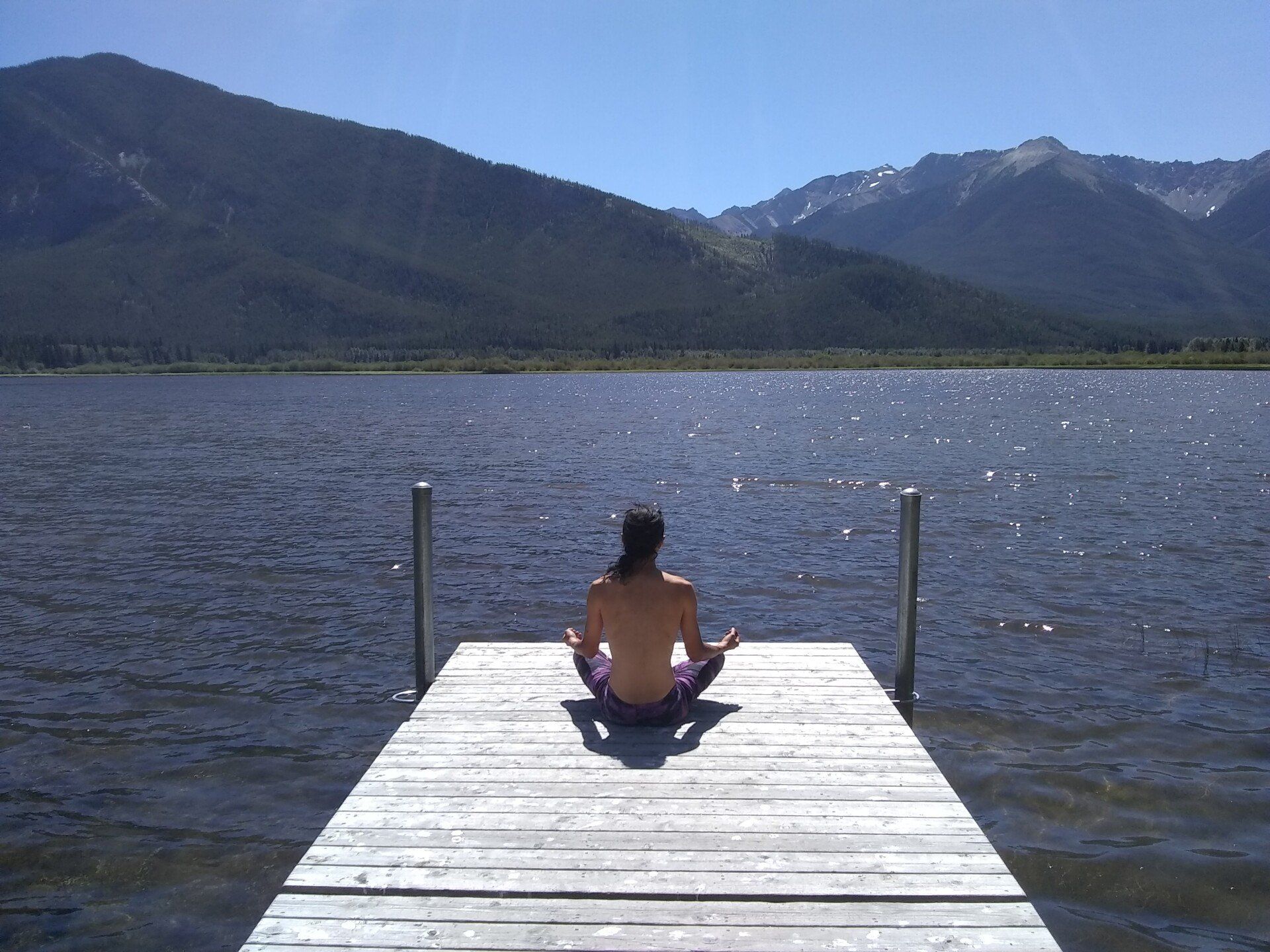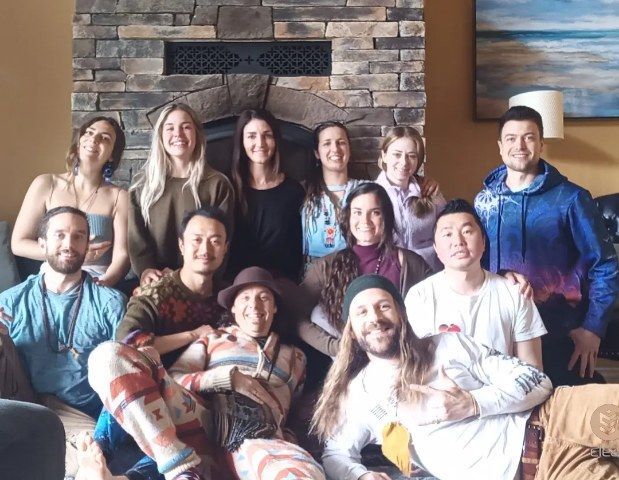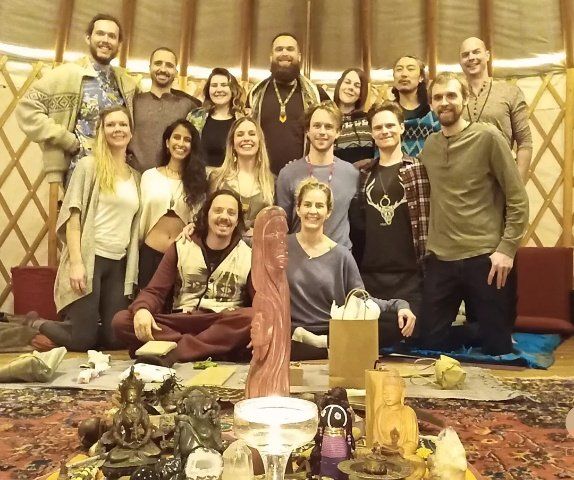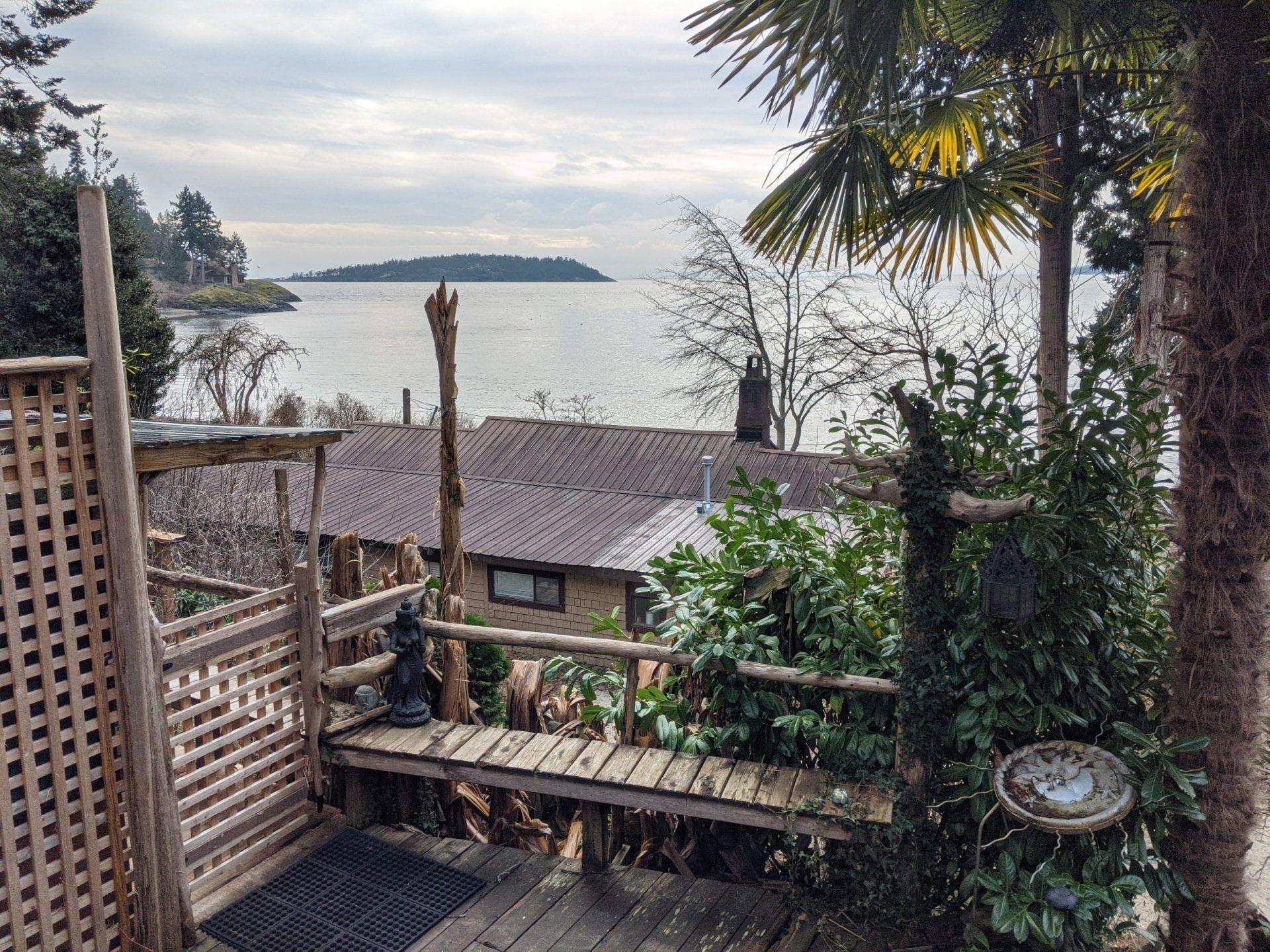Covid Through a Lens of Trauma
Andrew Lee • April 26, 2021
This pandemic is a result of humanity's lack of harmony with nature
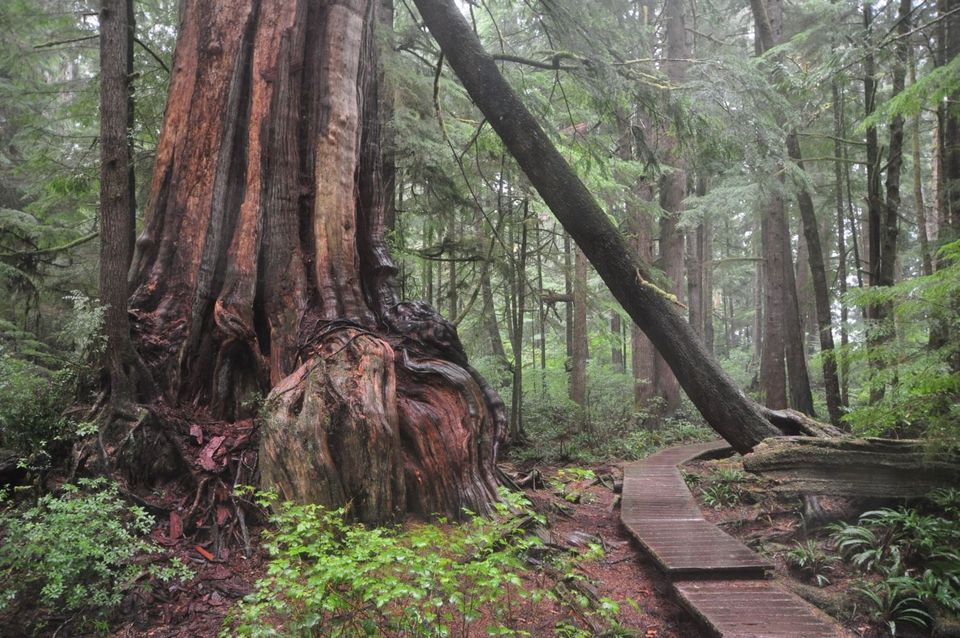
The outlook of the world is looking pretty bleak right now. The third wave of Covid is wreaking havoc. Fear and polarization is at an all time high, with people split down the middle on everything from lockdowns to vaccines, politics and conspiracy theories. Behind the scenes there are military insurgencies and coups punctuating global political turmoil, and tense environmental standoffs in old growth forests being logged in Canada and Tasmania.
Covid has affected my personal situation and, exacerbated by the pain and grieving at seeing the world burning around me, plunged me into a phase of darkness and despair I'm only recently emerging from. I know I'm not the only one going through a hard time.
It helped me to understand that this situation is much bigger than me. It's much bigger than all of us. This pandemic has been around for just over a year, but it's been much longer in the making. It's the response to an accumulation of trauma inflicted by humans on Mother Nature, and on each other. The trauma goes back before the Modern Era, and even the Industrial Era.
How far back does it go? Hopefully the following explanation will give you some perspective.
Yuval Noah Harari, author of Sapiens, contends that for the vast majority of human history, whether 2 million years of homo erectus, or 200,000 years of homo sapiens, humans have been living in relative harmony with nature. These humans were living a nomadic hunter-gatherer culture, taking only what they needed from the land before moving on and allowing the land to regenerate. Their impact was no more than any other organism in their ecosystem.
The first disruption to this harmony occurred, according to Harari, during the Cognitive Revolution about 70,000 years ago. Around this time homo sapiens
experienced a major leap in intelligence allowing them to make better tools and to better communicate and cooperate with each other. This led to homo sapiens wiping out Neanderthals, and then migrating to every corner of the globe and adapting to every habitat. Whether by boat to the Pacific islands or by foot to icy Siberia and the entire Americas, everywhere homo sapiens went it became the apex predator, dominating many large fauna to extinction such as the mammoth, disrupting their new ecosystem's food chain.
However, the major disruption to harmony with nature occurred at the advent of the Agricultural Revolution
starting about 13,000 years ago. Homo sapiens began giving up the nomadic way of life, settling down in one spot. Defecating in one spot, tilling the soil and reducing diversity, humans degraded nature, causing disease and famine on a scale never before seen by their hunter-gatherer predecessors.
Humans began settling in towns and villages. This gave rise to formal power hierarchy systems, needed to organize militaries and infrastructure building. For the first time in human history, humans were given power over others. Drunk on this power, newly minted aristocrats began oppressing the lower classes. Hungry for more power, they expanded their treasure chests and empires through war mongering. I write about humans' inability to have power in this blog.
The advent of the Agricultural Revolution signaled a major break in the harmony between homo sapiens and nature. This break in harmony with nature was reflected spiritually within homo sapiens. It lost sight of what truly matters to health and happiness. Its expanding need and greed resulted in the raping and pillaging of both fellow homo sapiens and the environment, further resulting in the proliferation of disease, famine, war and oppression. These phenomena caused trauma in the population. These traumas got passed on generation to generation. Ensuing generations, unaware of their traumas, covered up their pain by oppressing future generations and by colonializing other peoples, as well as their environment, degrading Mother Nature, causing her to respond with disease and famine which exacerbated the trauma on humans.
The Industrial Revolution
heralded an age of unprecedented technological advancement, leading to exponentially increasing ability for humans to extract natural resources. This greatly accelerated humans' disharmony with nature, causing her to respond on a larger than before scale, with natural disasters inflicting great trauma on victims.
In a vicious cycle, colonialism traumatizes nature and future generations, sewing the seeds for more colonialism, war and disease.
As you can see, since the Cognitive Revolution 70,000 years ago, humans began breaking away from harmony with nature and traumatizing its own population. This self-reinforcing cycle of trauma was exponentiated by technological growth. Today we have reached a critical level of disharmony with nature, leading to possibly the deadliest and most enigmatic disease yet, COVID-19. The resulting pandemic is creating unprecedented levels of trauma in humans.
Yet the pandemic is only a symptom of the bigger picture as just explained. Fixing what ails us involves healing many millennia of trauma and coming back into harmony with nature. If we don't address our crisis at a spiritual level, once the pandemic is over, we will continue oppressing each other and polluting the planet, creating a future with disasters and pandemics not yet imagined.
What we need is a spiritual revolution of love and compassion for fellow humans and nature.
Technology will only temporarily solve our woes.
We need to connect with each other.
A landmark 75-year Harvard study
shows that the greatest predictor for longevity and happiness is human connection. The loneliness epidemic is killing us quietly, and it's been made worse by lockdowns and social distancing.
We need to heal our relationships.
Gabor Maté, famous trauma researcher, argues that when we don't know how to say no others, our body says it for us. In his bestseller, When the Body Says No, Maté shares compelling research that many cancers, digestive, cardiovascular, and autoimmune diseases are more strongly linked to emotional repression than to genetics and other environmental factors. The stress we take on from difficult relationships lowers our immune systems' capability of fending off disease. Healing our relationships may be one of the greatest steps we as individuals can take to healing ourselves and boosting our immune systems against novel viruses.
We need to reconnect with nature.
This was the very reason we found ourselves in this situation. We need to nurture Mother Nature, to come back into balance with her. In order to understand her, we need to be wild. Bask in her forests, put our bare feet to the earth, swim in her oceans. Above all, we need to plant trees and grow our own food.
The global situation may seem helpless, but there's a lot of small steps we can take as individuals. If we can heal ourselves, we can transform ourselves from burdens to activists. We can raise future generations trauma-free, able to concentrate their energies on nurturing nature. If we can heal the world, we can make it a better place for the entire human race.
"Heal the world, make it a better place
For you and for me and for the entire human race.
There are people dying. If you care enough for the living
Make a better place for you and for me."
- Michael Jackson
PS. If you enjoyed this blog, I wrote one with a very similar theme, link here. Thanks! And I am always and welcoming and open to feedback
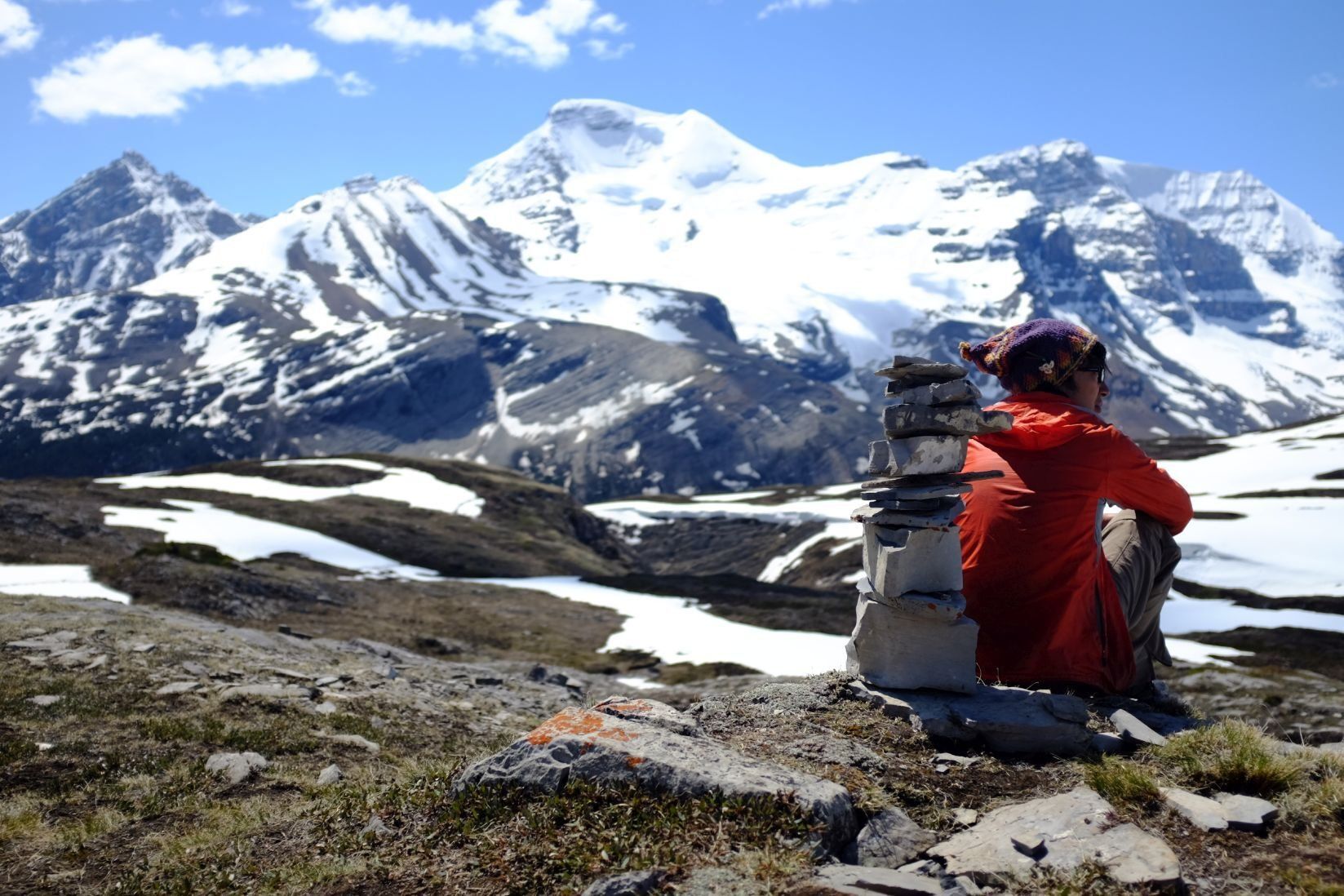
"People shouldn't be afraid of their governments. Governments should be afraid of their people." This phrase from my favourite movie alludes to the fact that the people should be the prevailing force that keeps their government in check. At some point a government becomes too big and starts looking after its own interests, no longer serving the needs of the people it was created for. Governments have long been the dominant organizations of the 20th century. In the 21st century technology corporations are eclipsing governments. Rapidly advancing technology has increased not only the influence of these national and multinational organizations, but their ability to monopolize even more power. When organizations reach a certain size, just like governments, they no longer act to serve the people, but their own interests. T here are plenty of examples of this throughout history. Facebook was recently exposed, when a former employee and whistleblower testified to the US Senate that the company repeatedly faced conflict of interests over profits versus reducing division, and always put profit first. Polarization for Profit How was FB able to do this? Typically if a company was exposed for not serving its customers' best interests, customers would take their business elsewhere. But with social media, there is almost nowhere else to go. FB has cornered the market, and intentionally bought or squashed competitors to cement its dominance in the space. Undermining free market principles has allowed FB to serve its own interests over the interests of its customers. They are maximizing their profit by allowing dishonest science to go viral, and allowing divide and conquer to occur. Facebook isn't the only big tech company guilty of this activity. Google, Microsoft and Apple have been sued for antitrust actions . And big tech isn't the only corporate sector valuing profit over people. Nearly all the largest corporations are guilty of some sort of fraudulent behavior, whether it's big oil, big pharma, big agriculture or big food. Governments are not only complicit in allowing corporate abuse to occur, they are often hand-in-hand with corporations and mainstream media. I've seen this first-hand with my experience at the Fairy Creek Blockade , the largest act of civil disobedience in Canadian history, preventing old growth logging on Vancouver Island. On the ground at Fairy Creek I've witnessed a coming together of some of the most beautiful and inspiring humans, passionately protecting the environment against corrupt political leader Premier Horgan, who went back on his word to stop old growth logging. In the news, however, there's little to no coverage of the events, and what coverage there is, is highly skewed against the protesters. It was here where my direct experience caused me to lose faith in mainstream media, and to see how they are under the sway of existing power structures. To see how they would take certain photos or video snippets and portray them in a different light, to make protesters appear irresponsible or incompetent. Or to portray the Premier's words and actions as if he was resolving the issue, when in reality he was deceiving the public. The Psychology of Polarization So why, on a psychological level, is polarization catalyzed by social media? It's quite simple really. Technology has eroded the quality of communication between people. There is a richness to face-to-face communication that cannot be conveyed. Studies have shown that 90% of communication is nonverbal (body language and voice tone), meaning only 10% of communication is through words alone. Words alone are such a poor quality of communication that they do not properly express the author's full meaning, and are too easily misinterpreted by the reader due to their own biases. This is especially true with words on a screen, transmitted through instant messages or social media posts. And yet it has become the most dominant form of communication due to its convenience. How many times did you misinterpret a text or a social media post, and respond with a critical comment? How often did this needlessly escalate into a full blown conflict? It happened quite a bit in the past with me, and I eventually learned to resolve disagreements with a phone call or meeting face-to-face. Unfortunately, too many people rely on texting because they have gotten too used to it and have lost their ability and initiative to resolve conflicts in person. Humans are still wired for face-to-face communication, and this is particularly necessary when resolving conflicts. Today, we are creating conflicts through texting and comments on social media posts. This is a recipe for disaster, a vicious cycle of misinterpretation where one comment blows up into massive conflicts. And, as mentioned in the previous section, Facebook is aware that this is happening on their platform, and instead of working to resolve it, they are exacerbating the problem. But the sole goal, the very existence of a corporation, is profit. Any non-financial consequence is a mere externality. Bridging the Communication Gap Seeing the bigger picture isn't easy. It takes a trauma-informed understanding of how the world got this way, in order to move forward with nonviolent solutions that bring people together, not further apart. The majority of people are living in fear. Their nervous systems are constantly in hypervigilance, meaning they are on edge, ready to engage in fight or flight. Showing them disagreeable information will only trigger their fight or flight, and potentially start a vicious cycle of arguing. People living in this way carry a narrowed perspective, focusing only on survival, and are thus unable to see the bigger picture. In order to engage with people on the other side of the coin, social media is not the answer because its low quality medium of communication creates further division. What's needed is the exact opposite . The one antidote in a time of such extreme polarization and division is face-to-face conversations with those we disagree with. This is also exactly what is being discouraged by the pandemic. Mask mandates have undermined our ability to see and read facial gestures. Closures of small businesses and gathering places have prevented the opportunities for holding the gatherings and face-to-face conversations needed to bridge this gap. It is critical to be able to spend time with people we don't know in order to break down each other's walls, and eventually feel safe sharing information without feeling antagonized. The Way Forward More and more people out there are realizing deep down that not all is as it seems. If I have a plea to you, it is, against all odds, to take the courageous step to gather with people and have face-to-face conversations again. If you can do this with people you already feel safe with and who share your views, then do this with people who you don't agree with. Start by smiling at strangers outdoors. Engage in friendly conversation. Unmasked people have been framed as antagonists. If you are brave enough to go into indoor businesses without masks, smiling at people completely disarms their hypervigilance. This is exactly what I have been doing, and the vast majority of my interactions have been positive or innocuous. I've had people smile back at me and acknowledge my bravery, and others follow my lead and take off their mask. Unmasked and smiling, you are a shining light, a warrior. You are an inspiration to others who sense something is wrong but are too afraid to act out against the narrative. Even if you have confrontations, smiling and holding your head high, proves to the confronters that you are a compassionate individual. Not only are you disarming the narrative, but you are disarming nervous systems. I certainly have had a few business owners ask me to put on a mask or leave, and obliged their concerns with a smile. If conflicts occur through your social media platforms, engage directly with others through phone calls or voice messages. This has been my most effective tool for deescalating conflicts. However, I choose phone calls and voice messages over texting more and more often these days in general, because my friends and I value the richness of expressing in voice and hearing each other's voices. Polarization is one of the greatest invisible threats to society, preventing people from uniting in action against tangible and urgent threats. It is up to all of us individually to overcome these barriers, through gathering and having face-to-face conversations again, with those we do and do not share views with.

